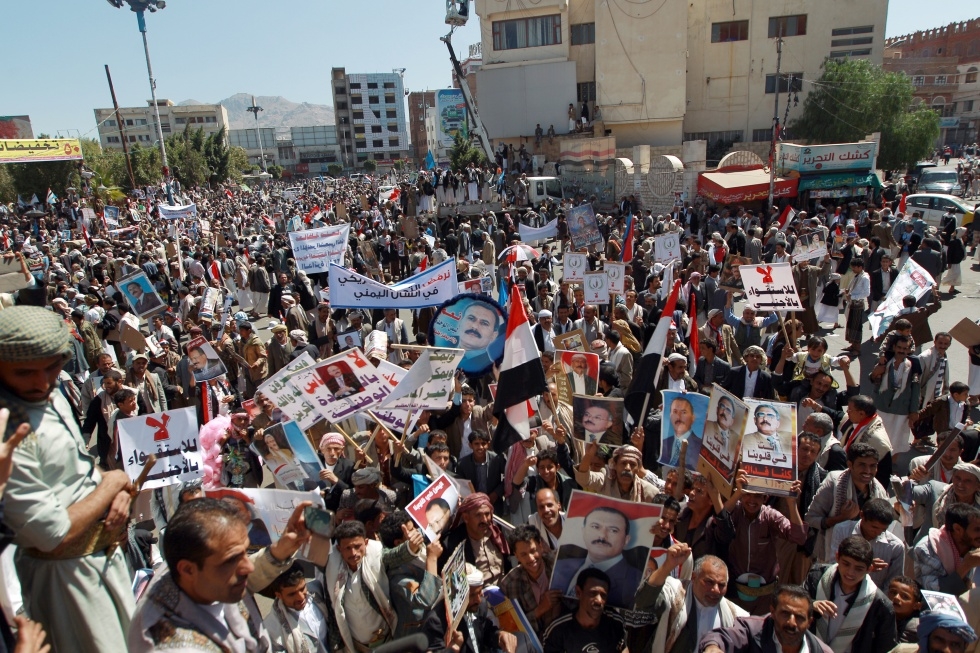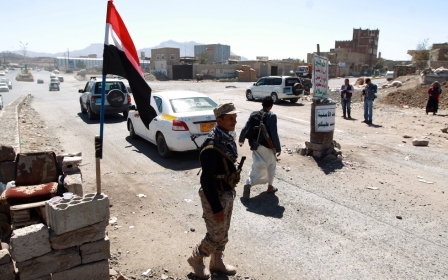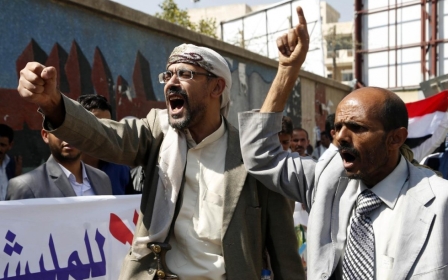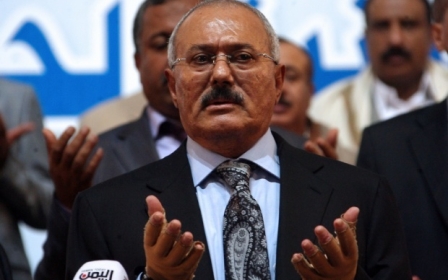Yemen announce new government, amid mass rallies of support for ousted Saleh

Yemen state television announced Friday a new cabinet, forming a new government, ending weeks of political deadlock in the impoverished Gulf state.
State television broadcast the news of 34 ministers to be in the new government – including five women – that will comprise members from the Houthi rebel group and southern separatists Herak.
President Abd Rabbuh Mansur Hadi and Prime Minister Khaled Bahah were approved last Saturday to form a new technocratic government by key players including the Houthis.
“Most Yemenis hope that this government will put an end to months of instability and violence,” Al-Jazeera English’s Hashem Ahelbarra told the Qatar-based news channel.
“However, the reaction of Houthis and supporters of Ali Abdullah Saleh […] are important for this goal to be achieved.”
Earlier on Friday tens of thousands of supporters of Yemen's ex-president Saleh took to the streets of the capital Sanaa to demonstrate support for their ousted leader. This comes following rumours that the US had threatened Saleh with international sanctions.
This week Saleh's General People's Congress (GPC) issued a call for these rallies after a US diplomat in Sanaa was allegedly quoted as saying that Washington had told Saleh to leave the country or face international sanctions.
The US embassy has denied the statements. “The GPC statements about threats to Saleh from the US are untrue,” the State Department said in a statement emailed to Reuters. “There have been no meetings between the ambassador and GPC officials at which any such statements have been made.”
However, Saleh's office said this week that the party had been told by US Ambassador Matthew Tueller – through a mediator – that Saleh must leave the country by Friday at 5pm or face international sanctions.
The GPC warned that the imposition of sanctions on Saleh would "obliterate" a 2012 UN-backed settlement between Yemen's rival political camps under which Saleh resigned amid massive protests.
"The Yemeni people will not accept any threats against a Yemeni citizen, which would constitute a breach of Yemen's sovereignty and constitution," the GPC said.
"If any sanctions are imposed [against Saleh] it will be hard to predict the scope of the popular backlash," the party added.
The party said that sanctions would be counterproductive. “Any sanctions against the former president will be regarded as a slap in the face for the sacrifices that the party has made since 2011,” Ahmed al-Soufi, a media advisor to the former president, told Middle East Eye. “If the UN has any charge against any members of the party, it should present evidence to the party and we are ready to discuss it.”
Local media last month reported that the UN was mulling sanctions against five Yemeni political figures, including Saleh and his son, for "undermining Yemen's democratic transition."
The three other targeted individuals are all senior members of the Shiite Houthi group, which has remained in control of capital Sanaa since 21 September.
The proposed sanctions include international travel bans and asset freezes.
Further protests are expected to take place in the coming days.
Al-Qaeda's Yemen chief says Shiite rebels serve US-Iran plot
Al-Qaeda's leader in Yemen has accused Shiite rebels sweeping across the country of collaborating with the United States and Iran to try to "destroy" Sunni Muslims.
An audio message purported to be from Nasser al-Wuhayshi, posted online Friday, says the aim of the "crusaders and the Iranians is to destroy effective Sunni forces and the faithful mujahideen, and to empower their collaborators."
Al-Qaeda uses the term crusaders to refer to Western powers, especially those countries which have intervened militarily in Muslim countries.
Middle East Eye propose une couverture et une analyse indépendantes et incomparables du Moyen-Orient, de l’Afrique du Nord et d’autres régions du monde. Pour en savoir plus sur la reprise de ce contenu et les frais qui s’appliquent, veuillez remplir ce formulaire [en anglais]. Pour en savoir plus sur MEE, cliquez ici [en anglais].




